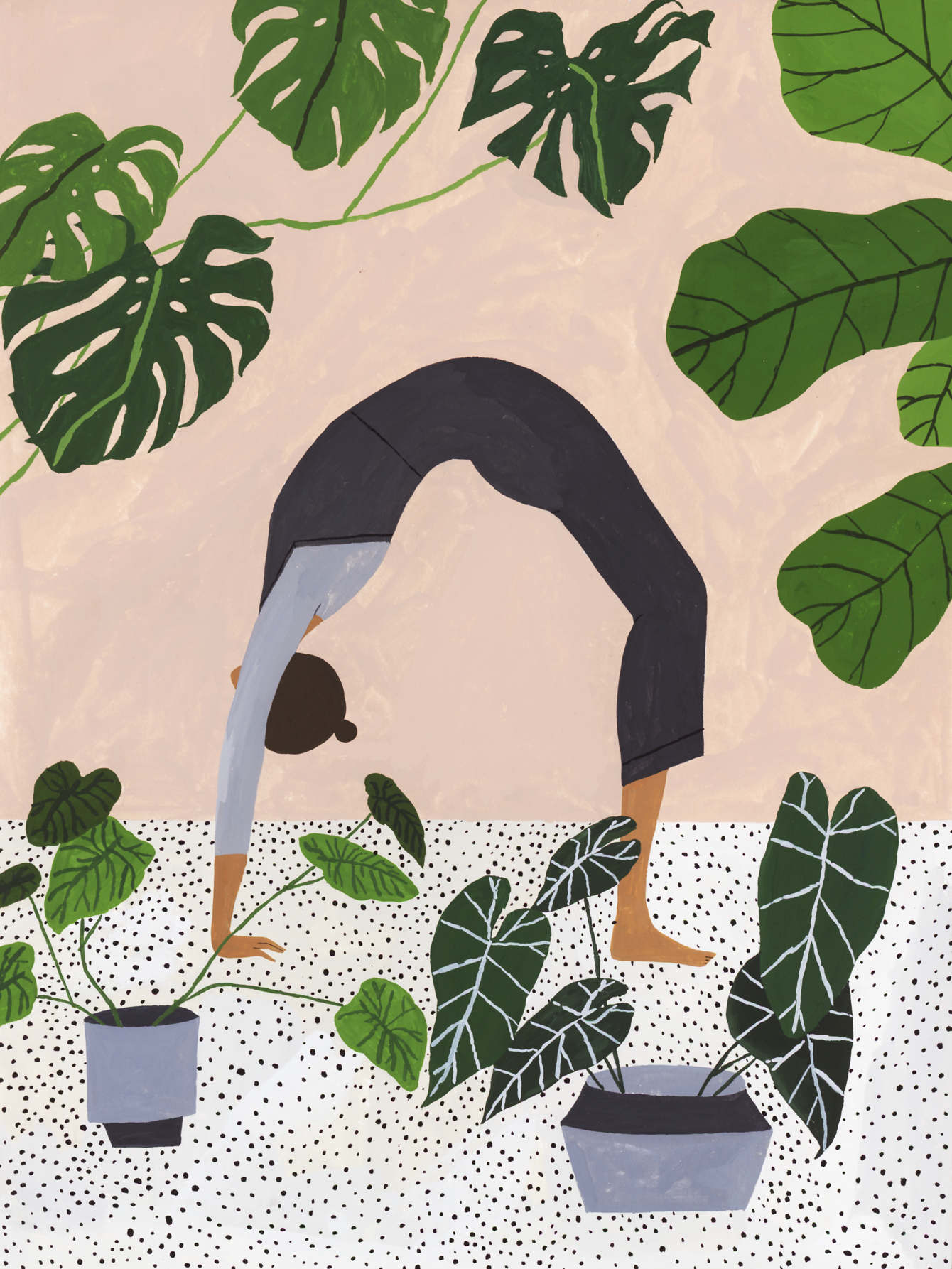A few years ago, I began my career as a full-time freelancer. While it has been an amazing journey so far (hello working from bed while Friends is playing) it hasn’t been without its own unique set of challenges.
Unlike having a 9-5 office job, where the work/life balance is more or less organized and tidy, being a freelancer has proved to be challenging in the mental health area.
Everyone I know (myself being no exception) is constantly “busy”- with a distracting stream of deadlines, requests, social engagements and familial duties to tend to. It’s exhausting, leading to burnout on a massive scale, and contributing to the mental health crisis that our society is facing today.
So a few months ago, in a desperate attempt to avoid a mental health crisis, I downloaded a guided-meditation app, and the results have been as astounding and they have been relaxing.
The single best thing most people can do for their mental health and well-being is to practice meditation. every. single. day.
Anyone who practices daily meditation will tell you that it is wonderful, and there’s really no surprise there. Daily meditation has been proven time and time again in scientific studies (over 3,000 studies to be exact!) to improve both your physical and mental health.
Some of these studies even indicated that meditating for just 20 minutes a day, for a few weeks, is enough to start experiencing the benefits of daily meditation.
Mindfulness meditation helps ease mental health conditions like depression and anxiety—so much so, that some clinicians are even recommending that their patients try meditation first before turning to medication.
Keep reading for just a *few* of the benefits you’ll experience by incorporating meditation into your daily routine:

Meditation Helps Reduce Stress
No matter how wonderful your life is, sometimes it can be stressful- no one can deny that.
Even though feeling stress is a normal part of life, there are ways to mitigate this stress so you can focus on the things that really matter. Enter: daily meditation.
Daily meditation is incredibly effective at reducing stress and anxiety. One study found that meditation significantly reduces stress, when practiced over the course of a few months.
Another study revealed that daily meditation can literally reduce the density of brain tissue associated with anxiety and worrying.
If you want your stress levels to decrease- and fast- practicing daily meditation may be the perfect solution.
Meditation Helps You Get Better Sleep
According to the Sleep Center at UCLA, “the quality of your sleep is closely related to how you think, how you act, and how you feel.”
If you’ve ever spent the night laying awake, staring at the ceiling, you are well aware of how you’ll feel in the morning: tired, cranky, and completely out-of-sorts.
Missing out on the recommended 7 to 9 hours of sleep a night does more than make you feel groggy and grumpy. The effects of sleep deprivation are real.
Your body needs sleep as much as it needs oxygen and food to function properly. While you’re sleeping, your body works to heal itself and restore it’s proper chemical balance. Without enough sleep, your brain won’t function properly- which can dramatically lower your overall quality of life.
Instead of spending another night tossing and turning in bed, consider adding a nightly meditation into your bedtime routine!
Night meditations help your body relax and slow down at the end of the day- a habit that becomes quite useful when it’s time to go to sleep.
Night time meditation will help you fall asleep faster, stay asleep longer, and feel better when you wake up.
Meditation Helps Lower Levels of Stress
Stress reduction is one of the most common reasons people try meditation. Several studies suggest that mindfulness meditation can benefit those who struggle with stress, anxiety and depression issues.
One study including over 3,500 adults showed that it lives up to its reputation for stress reduction. Other studies focus on understanding exactly how meditation works and why it positively affects the brain.
One of the best perks of practicing meditation is that anyone can do it, anywhere, and for free! If you’re finding yourself becoming overwhelmed by work, friends, or your kids- take a “time out” for a few minutes and tune into a guided meditation.
Don’t let the thought of meditating the “right” way add to your stress. There is no one-size-fits-all approach to meditation. If you’re looking for something to get you started, try this free guided meditation for stress relief.
Meditating Boosts Creativity
In today’s rapidly growing job market, creativity is often part of a job description.
However, when you’re required to be creatively inspired day in and day out, it’s easy to face creative-block, and feel like you’ve run out of fresh ideas.
So, what should you do to help get your bomb ideas flowing again?
Mindfulness meditation has been proven to be a great way to help boost your mood and help improve creativity.
If you are feeling like your creative juices just aren’t flowing like they should, try a guided meditation that is aimed towards cultivating creativity, and helping you tap into your creative side.
In mindfulness practice, we are learning how to return to, and remain in, the present moment—to anchor ourselves in the here and now on purpose, without judgement. –Mindful
Meditating 101
If you are new to the practice of daily meditation, here is a loose outline to help you get started:
Find a quiet place, where you feel comfortable and know you won’t be interrupted.
Sit in a position that will be comfortable enough for you to fully relax.
Set a timer, so you don’t lose track of time or feel rushed. In the beginning, the recommended time is anywhere from 5-10 minutes.
Gently close your eyes, and try to empty your mind of anything that is distracting you.
Ask yourself what you are currently experiencing, and observe your feelings, sensations, and thoughts.
Shift attention to your body, and observe your sensations. Focus on your breath, and how your belly extends and falls with each breath.
If your mind wanders, don’t feel bad or get discouraged. When you realize that your mind is no longer in the present, gently shift your focus back to your breathing. This is a normal part of the meditation process, so be kind to yourself.
When you are ready (or when the timer goes off) breathe deeply and open your eyes.
Do you have any daily meditation tips? Share them in the comments below!

